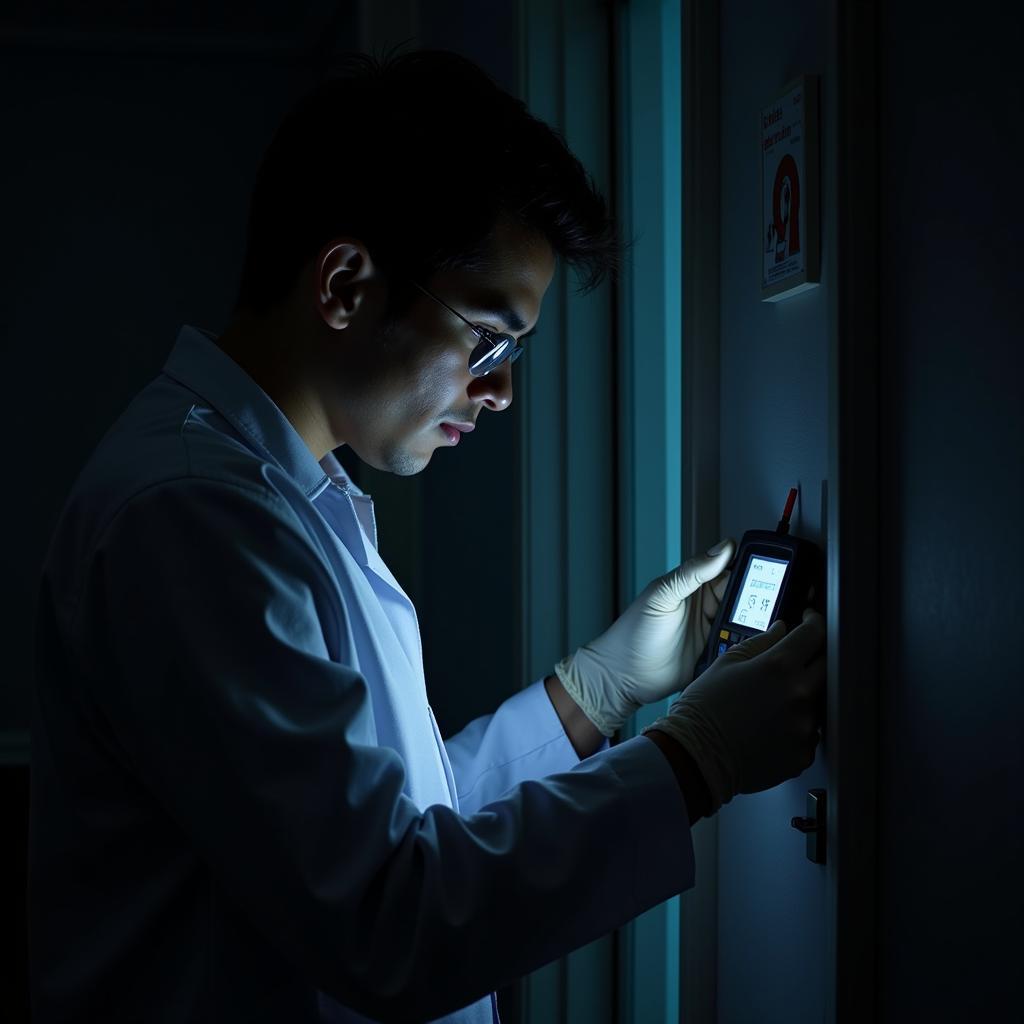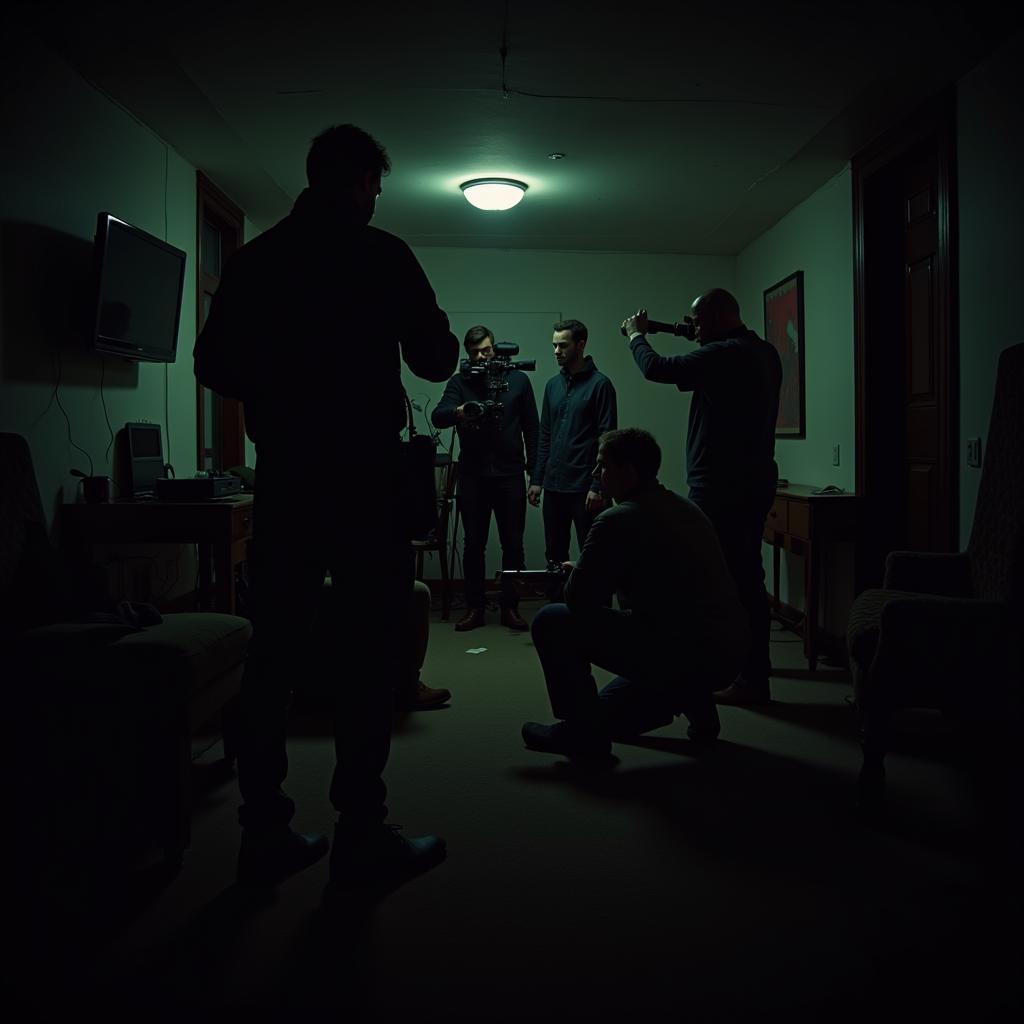The world of paranormal research often begs the question: Scientist Or Researcher? What distinguishes these roles, particularly when exploring the unexplained? This article delves into the nuances of these titles within the fascinating realm of paranormal investigation. We’ll explore how these individuals approach the unknown, the methodologies they employ, and the challenges they face in their pursuit of understanding the unexplained.
The Scientist in the Supernatural: A Quest for Empirical Evidence
Scientists within the paranormal field strive to apply the rigorous principles of the scientific method to their investigations. They meticulously collect data, formulate hypotheses, and conduct experiments, seeking empirical evidence to support or refute claims of paranormal activity. This often involves utilizing specialized equipment, such as EMF meters, thermal cameras, and audio recorders, to measure and analyze potential paranormal phenomena. Their focus is on objective observation and quantifiable data. How does this differ from a researcher? Let’s explore.
 Scientist Using EMF Meter to Investigate Paranormal Activity
Scientist Using EMF Meter to Investigate Paranormal Activity
The Researcher’s Role: Exploring the Unexplained
While a scientist researcher may focus on empirical data, a researcher scientist takes a broader approach. Researchers in the paranormal field delve into historical accounts, folklore, eyewitness testimonies, and cultural beliefs surrounding paranormal occurrences. They may conduct interviews, analyze documents, and explore the psychological and sociological aspects of paranormal experiences. This multifaceted approach acknowledges the complexities of the paranormal, which often extends beyond purely scientific measurements.
 Researcher Examining Ancient Texts for Paranormal Clues
Researcher Examining Ancient Texts for Paranormal Clues
Scientist vs. Researcher: Bridging the Gap in Paranormal Investigation
The debate surrounding scientist vs researcher within paranormal studies is not about opposition, but rather about complementary perspectives. A successful paranormal investigation often benefits from the combined efforts of both scientists and researchers. The scientific approach provides a framework for rigorous data collection and analysis, while the researcher’s broader perspective helps to contextualize the findings within the larger cultural and historical narrative. This collaborative approach provides a more comprehensive understanding of the complex phenomena under investigation.
What Qualifies Someone as a Paranormal Scientist or Researcher?
There isn’t a universally recognized certification for paranormal investigators. However, a strong background in a relevant scientific field (physics, psychology, etc.) can be valuable for those pursuing the scientific approach. For researchers, a background in history, anthropology, or folklore can be beneficial. Ultimately, a combination of education, experience, and a commitment to ethical investigation are key qualities for both scientists and researchers in this field.
Challenges and Criticisms in Paranormal Research
Paranormal research faces significant challenges, including the difficulty of replicating results, the subjective nature of many experiences, and the potential for bias. Critics often point to the lack of conclusive evidence and the possibility of misinterpretations or hoaxes. However, proponents argue that the inherent complexities of the paranormal require open-mindedness and continued investigation.
 Paranormal Investigation Team Using Various Equipment
Paranormal Investigation Team Using Various Equipment
Conclusion: Embracing the Unknown – Scientist or Researcher?
Whether one identifies as a scientist or researcher, the pursuit of understanding the paranormal requires a dedication to thorough investigation, critical thinking, and a willingness to explore the unknown. By combining scientific rigor with a broad perspective, we can continue to delve into the mysteries of the paranormal and shed light on the unexplained. The field continues to evolve, and the collaboration between researchers find plane in iceberg and those focusing on the paranormal remains crucial. Are you fascinated by the paranormal? Consider exploring the different paths available, such as the potentially lucrative field of cyber security researcher salary.
FAQ
- What is the difference between a scientist and a researcher in paranormal investigation?
- What are some common tools used in paranormal investigations?
- How can I become a paranormal researcher?
- What are some of the criticisms of paranormal research?
- What are some notable discoveries in paranormal research?
- What are the ethical considerations in paranormal research?
- What are some resources for learning more about paranormal research?
Scenarios
- Scenario 1: A homeowner experiences unexplained noises and shadows in their house. They might seek a Paranormal Researcher to investigate and offer explanations.
- Scenario 2: A team of scientists sets up an experiment in a reportedly haunted location to collect data on electromagnetic fluctuations and temperature changes.
- Scenario 3: A researcher analyzes historical documents to understand the cultural context of ghost stories and apparitions.
Further Exploration
Explore other articles on our website related to specific paranormal phenomena, investigation techniques, and the latest research findings.
Contact Us
For any assistance or inquiries, please contact us: Phone: 0904826292, Email: research@gmail.com or visit us at No. 31, Alley 142/7, P. Phú Viên, Bồ Đề, Long Biên, Hà Nội, Việt Nam. Our customer service team is available 24/7.